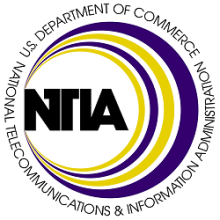NTIA Signals It Will Follow Law on Non-Deployment Funds, But Wants More Ideas
Close to a 1,000 broadband-minded registrants attended yesterday’s listening session on how to spend an estimated $21 billion in “non-deployment” funds states should have at their disposal from the federal BEAD (Broadband Equity, Access and Deployment) program.
Hosted by the National Telecommunication and Information Administration (NTIA), the Commerce Department agency administering the program, the online listening session featured about 50 selected speakers. Most of those who spoke advocated using the money to tackle the array of non-infrastructure barriers to expand broadband (affordability, device distribution, and digital skills programs) – made all the more urgent in light of the Trump administration’s sudden “termination” of the Digital Equity Act last year.
Though it runs counter to the bipartisan infrastructure law that established the program, a handful of speakers actually suggested the funds simply be returned to the U.S. Treasury, presumably to “save taxpayer dollars.”
One speaker even tried to make the case that money Congress explicitly intended to address the nation’s massive digital divide should instead be given to Air Traffic Controllers.










